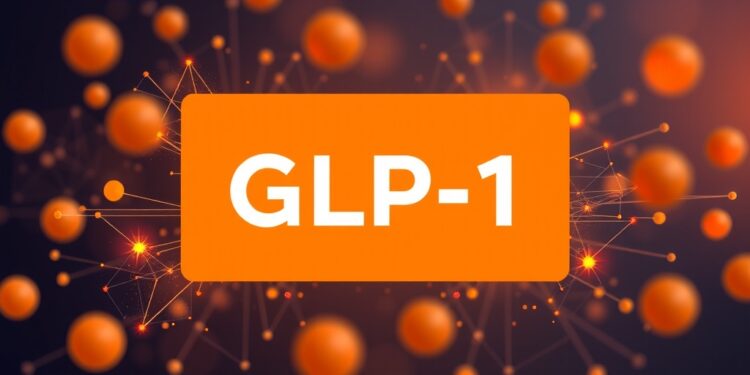
In a revealing cross-sectional study, researchers have examined the online landscape surrounding compounded glucagon-like peptide-1 receptor agonists (GLP-1 RAs), a class of medications increasingly sought after by individuals looking for alternatives to conventional weight management therapies. Compounded GLP-1 RAs serve as an unofficial substitute to the FDA-approved variants, yet the study indicates that consumers are often met with a labyrinth of misinformation when they turn to the web for guidance on these drugs.
The research highlights a significant gap in the information provided by many websites, which frequently fail to make it explicitly clear that these compounded medications do not possess FDA approval. Instead, several online platforms inadvertently or deliberately suggest that these compounded variants have met the stringent requirements for safety and efficacy that govern FDA-approved medications. This breach of trust can lead to consumers making uneducated decisions regarding their health, potentially jeopardizing their safety.
Moreover, the findings reveal an alarming trend where the majority of the websites surveyed provided insufficient safety information while making unauthorized claims about the efficacy of compounded GLP-1 RAs. This raises several pivotal questions about the ethical responsibilities of online pharmacies and the validity of information shared concerning medical treatments. Such unauthorized claims could easily mislead consumers into perceiving these compounded drugs as not only viable options but also as effective solutions to their weight management concerns.
Another troubling aspect discovered was the tendency of certain websites to incorrectly categorize these compounded medications as ‘generic.’ This misclassification can create further confusion among consumers who are seeking legitimate, cost-effective alternatives to branded medications. Generics adhere to strict regulations set forth by the FDA, which provides assurance regarding their safety, efficacy, and quality. By misrepresenting compounded drugs as generics, websites obscure the fundamental differences between these two categories of medication, essentially diminishing the consumer’s ability to make well-informed health decisions.
The research also underscores the critical importance of transparency in online health information dissemination. A majority of the websites examined lacked adequate disclosures regarding the compounded nature of the GLP-1 RAs. The absence of this critical piece of information can lead consumers to perceive these treatments as safe and approved by regulatory bodies, which is far from the reality. Transparency should be a cornerstone of all medical communications, especially in an era where individuals increasingly rely on the internet for health-related guidance.
Additionally, the study emphasizes the vital need for regulatory bodies to step in and implement stricter guidelines for online pharmacies. This could help ensure that consumers are exposed to accurate, clear, and comprehensive information about the medications they are considering. By enforcing stringent regulations that require accurate labeling and disclosures, consumers would be better protected from misleading marketing tactics that can contribute to unsafe health practices.
The implications of this study extend beyond just the realm of compounded GLP-1 RAs. They call into question broader issues regarding the integrity of online medical resources and the alarming spread of misinformation about various treatment options available to consumers. As the internet becomes the go-to source for health-related inquiries, it is imperative that consumers empower themselves with knowledge while also advocating for tighter regulations and standards across such platforms.
In light of the ongoing obesity epidemic and the growing demand for effective weight management solutions, clarity and accuracy in medical information have never been more crucial. Healthcare professionals must work alongside regulatory bodies and online platforms to cultivate an environment where patients can confidently seek information without the fear of being misguided or misled.
This study serves as a poignant reminder of the complexities inherent to navigating health information in the digital age and the crucial need for ethical responsibility within the realm of online healthcare. Such a landscape not only necessitates vigilance from consumers but also demands accountability from those who produce and disseminate health information.
Engaging in open discussions and fostering awareness about these issues could pave the way for enhanced patient education and improved health literacy. It is incumbent upon all stakeholders—from regulatory agencies to healthcare providers and online platforms—to collectively strive for higher standards of truthfulness and transparency, ultimately enhancing the public’s trust in the medical community and the resources it provides.
The health of individuals is at stake when misinformation spreads unchecked in the online domain. It is the obligation of everyone involved to ensure that accurate, reliable, and comprehensive information is readily available to those who seek it, fostering a community that prioritizes patient safety and well-being above all else.
As the discourse around compounded medications continues to evolve, it is essential to remain vigilant and ensure that market practices align with the foundational principles of medicine—namely, prioritizing the health and safety of individuals in a climate where knowledge and transparency are paramount.
Subject of Research: Consumer awareness and misinformation surrounding compounded glucagon-like peptide-1 receptor agonists (GLP-1 RAs).
Article Title: Misinformation About Compounded GLP-1 RAs: Understanding the Online Landscape.
News Publication Date: 2024.
Web References: Not available.
References: Not available.
Image Credits: Not available.
Keywords: GLP-1 RAs, compounded medications, FDA approval, misinformation, consumer safety, online pharmacies, health literacy, regulatory guidelines.





